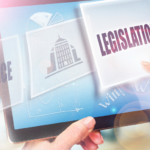Tag: publishing
July 17, 2024
Technology, Media and Telecom
Technology, Media and Telecom
CHANGES IN LAW PERTAINING TO SEDITION, DEFAMATION AND I...
The Bharatiya Nyaya Sanhita, 2023 ("BNS"), the legislation that replaced the existing Indian Penal Code, 1860 ("IPC") was brought into effect on July 1, 2024. BNS while introducing various new offences also reformulates certain older provisions and introduces new nomenclature for some offences. . . . ...
July 15, 2019
Intellectual Property | Copyright | Publishing
Intellectual Property | Copyright | Publishing
Protecting pseudonymous works
The works of writers like Enid Blyton, George Eliot, Premchand, and Saki, have come to be embedded in our minds for generations, such as. We associate these names with canonical literature, but sometimes forget that these were not the authors’ real names. They were, in fact, pseudonyms, or pen names, adopted by their owners. The motivation for adopting a pseudonym for a creative work is not always clear, and can include a wish to create a separate identity from one’s real life persona. Whatever be the reason, the manner of protecting copyright in pseudonymous works is slightly different from that of a conventional copyright, which is the subject of this piece....
May 20, 2019
Technology, Media and Telecom
Technology, Media and Telecom
Maps in publications: Permissions, restrictions and leg...
Maps make stories easier to understand. Whether it is history, geography or political science, a map can break down complex details into a simple picture, and bring immediate clarity. The boundaries depicted by a map are often fundamental to the story. As a result, the accuracy of maps is of particular concern, and often requires navigating legal and regulatory paths to avoid argument and controversy. This note offers a brief look at the issues that private publishers must keep in mind when publishing maps...
April 11, 2019
Intellectual Property | Copyright
Intellectual Property | Copyright
Unpacking copyright and moral rights in translations
The Literature Nobel Prize Winner, Jose Saramago, from Portugal, is reported to have said, “Writers make national literature, while translators make universal literature.” Truly, some of the greatest works in literature, both Indian and foreign, would have remained alien to us had it not been for translations. Anna Karenina, Don Quixote, Madame Bovary, One Hundred Years of Solitude, Raag Darbari, One Part Woman… these are just some examples. As the Indian literary market gets increasingly flooded with translations into English, and cross-translations across other Indian languages, interesting questions emerge for both publishers and authors. ...
March 20, 2019
Technology, Media and Telecom
Technology, Media and Telecom
Balancing Defamation and Free Speech Notes for the publ...
In what has been termed a “defamation blitz”, an Indian corporate house has filed at least 28 defamation suits in courts since January 2018, targetting media and publishing houses, journalists, authors and politicians. Four companies under the Reliance Group have filed these suits objecting to content and reportage published about the company’s commercial activities. This is part of a larger trend in India around defamation suits which raises many questions for publishing houses and authors.
...















